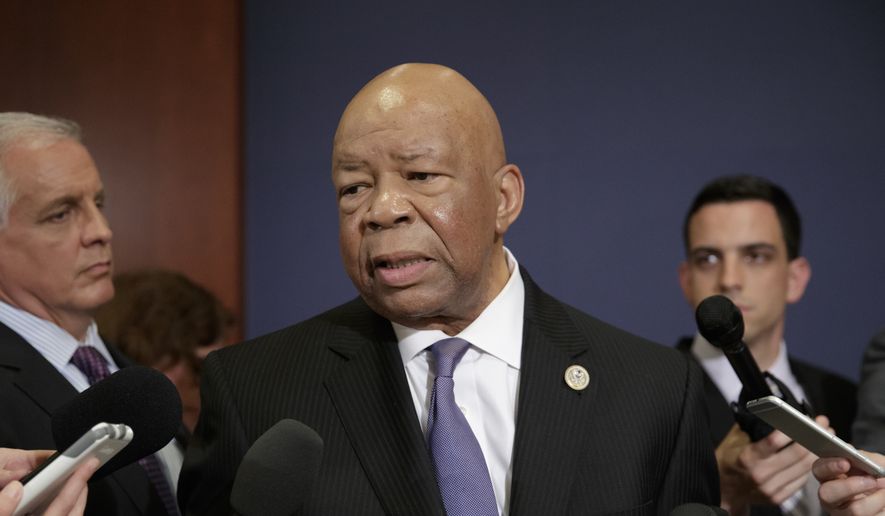The top Democrat on the House Oversight Committee called on The Trump Organization Wednesday to shed more light on the moves it has made to shield President Trump from possible violations of the emoluments clause of the Constitution.
Rep. Elijah Cummings of Maryland said in a letter sent Wednesday to George A. Sorial, executive vice president and chief compliance counsel at The Trump Organization, that there are lingering questions over whether Mr. Trump has followed through on his promise to voluntarily donate to the Treasury the profits his hotels take in from foreign governments.
“Complying with the United States Constitution is not an optional exercise, but a requirement for serving as our nation’s President,” Mr. Cummings said. “If President Trump believes that identifying all of the prohibited foreign emoluments he is currently receiving would be too challenging or would harm his business ventures, his options are to divest ownership or submit a proposal to Congress to ask for our consent.”
Last month, Mr. Cummings requested that The Trump Organization provide the committee with a breakdown of the policies it has in place to identify money it receives from foreign governments.
In response, Mr. Sorial said The Trump Organization has taken several steps that aim to avoid any conflict of interest — including a new policy regarding the identification and donation of foreign profits earned at Trump hotels and businesses.
In the letter Wednesday, Mr. Cummings said several questions remain unanswered and said the policy fell short.
The Maryland Democrat took particular issue with a clause in the policy that says, “To fully and completely identify all patronage at our Properties by customer type is impractical in the service industry and putting forth a policy that requires all guests to identify themselves would impede upon personal privacy and diminish the guest experience of our brand.”
“It is not the intention nor design of this policy for our Properties to attempt to identify individual travelers who have not specifically identified themselves as being a representative of a foreign government entity on foreign government business,” the policy says.
Mr. Cummings suggested hotel guests should be required to say whether they represent a foreign government and said the policy “does not appear to capture indirect payments by foreign governments through third parties.”
“The deficiencies in this approach are obvious,” he said in the letter. “Under the policy outlined in this pamphlet, foreign governments could provide prohibited emoluments to President Trump, for example, through organizations such as RT, the propaganda arm of the Russian government, or a host of other entities that are funded and controlled by foreign governments. Those payments would not be tracked in any way and would be hidden from the American public.”
Mr. Cummings called on Mr. Sorial to schedule a briefing with committee staff and to provide more detailed responses to previous questions.
• Seth McLaughlin can be reached at smclaughlin@washingtontimes.com.




Please read our comment policy before commenting.